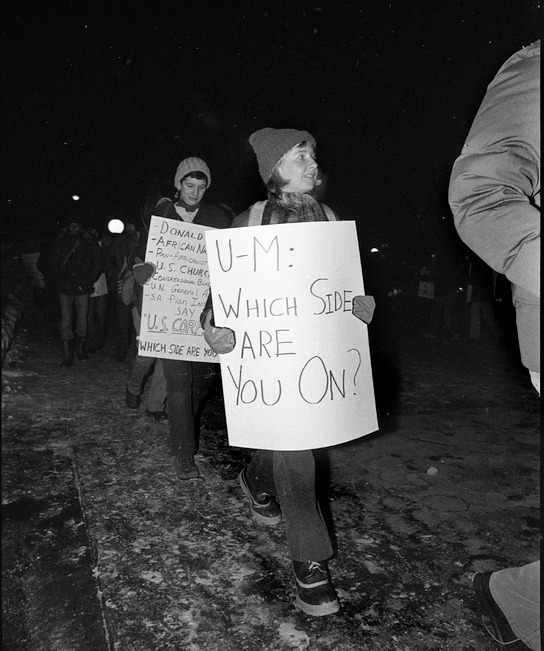III. Political and Legal Victories and Resistance: 1980-1984
As student protesters drew attention to the divestment movement at the University of Michigan in the late 1970s, another battle was taking shape in the Michigan Legislature. These legislative fights, which lasted well into the 1980s, would be characterized by the actions of progressive state congressmen and pushback from UM’s Board of Regents. State Representative Perry Bullard, a Democrat from the district of Ann Arbor, took up the challenge of passing legislation to place sanctions on South Africa and force state funded institutions to divest holdings in corporations with South African ties. Beginning with House Concurrent Resolution No. 462 in 1978, he worked with other state legislators to urge the imposition of sanctions against South Africa for human rights violations. As momentum for the anti-apartheid movement grew and national awareness of the conditions in South Africa spread, the Michigan Legislature decided to pass Public Act 512 in 1982. This new law required all publicly funded colleges and universities in the state to divest. Then, UM’s Board of Regents sued the state of Michigan to challenge Public Act 512 and prevent the forced divestment of millions of dollars. Regents v. Michigan became a battle not only against Public Act 512, but also of the ability of the state to regulate private investments at the University, and against anti-apartheid groups on campus calling for the Regents to follow in the footsteps of other public universities in the state of Michigan.

